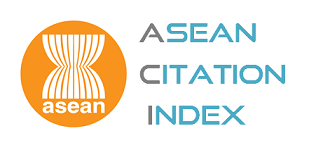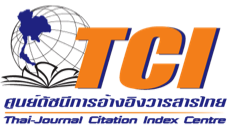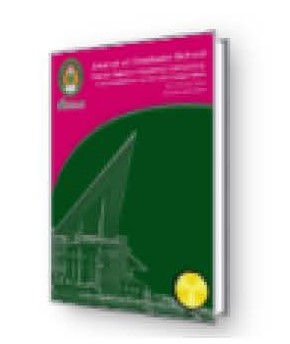การพัฒนาระบบประกันคุณภาพภายในโดยใช้การจัดการความรู้และการประเมินแบบเสริมพลัง สำหรับสถานศึกษาขนาดเล็กสังกัดสำนักงานคณะกรรมการการศึกษาขั้นพื้นฐาน
Abstract
การพัฒนาระบบประกันคุณภาพภายในโดยใช้การจัดการความรู้และการประเมินแบบเสริมพลัง สำหรับสถานศึกษาขนาดเล็กสังกัดสำนักงานคณะกรรมการการศึกษาขั้นพื้นฐาน
DEVELOMENT OF AN INTERNAL QUALITY ASSURANCE SYSTEM USING KNOWLEDGE MANGEMENT AND EMPOWERMENT EVALUATION FOR SMALL SCHOOL UNDER THE OFFICE OF THE BASIC EDUCATION COMMISSION
บทคัดย่อ
การวิจัยนี้มีวัตถุประสงค์เพื่อ (1) พัฒนาระบบประกันคุณภาพภายในโดยใช้การจัดการความรู้และการประเมินแบบเสริมพลัง สำหรับสถานศึกษาขนาดเล็ก สังกัดสำนักงานคณะกรรมการการศึกษาขั้นพื้นฐานและ (2) ประเมินระบบประกันคุณภาพภายในโดยใช้การจัดการความรู้และการประเมินแบบเสริมพลัง
วิธีดำเนินการวิจัยแบ่งเป็น 2 ระยะ คือระยะที่ 1 การพัฒนาระบบประกันคุณภาพภายในโดยใช้การจัดการความรู้และการประเมินแบบเสริมพลังสำหรับสถานศึกษาขนาดเล็ก โดยศึกษาเอกสารและสอบถามผู้บริหารสถานศึกษาจำนวน 30 คน และครูผู้สอนจำนวน 170 คน ซึ่งได้มาโดยการสุ่มแบบหลายขั้นตอน สอบถามผู้เชี่ยวชาญ จำนวน 5 คน เพื่อตรวจสอบความตรงเชิงเนื้อหาของร่างระบบประกันคุณภาพภายในที่พัฒนาขึ้น เครื่องมือวิจัย ได้แก่ แบบสอบถามร่างระบบประกันคุณภาพภายในสถานศึกษาและแบบประเมินร่างระบบฯ การวิเคราะห์ข้อมูลใช้ร้อยละ ค่าเฉลี่ย ส่วนเบี่ยงเบนมาตรฐาน ดัชนีความสอดคล้องและการวิเคราะห์เนื้อหา ระยะที่ 2 การประเมินระบบประกันคุณภาพภายในสถานศึกษา โดยนำไปทดลองใช้กับโรงเรียนทุ่งหนองขามวิทยา ผู้ให้ข้อมูลคือ ผู้บริหาร 1 คน และครู 10 คน เครื่องมือวิจัย ได้แก่ แบบวัดความรู้ความเข้าใจเกี่ยวกับการประกันคุณภาพภายในสถานศึกษาระบบประกันคุณภาพภายในสถานศึกษาที่พัฒนาขึ้น คู่มือระบบ แบบสอบถามความพึงพอใจและแบบประเมินคุณภาพระบบ การวิเคราะห์ข้อมูลใช้ค่าเฉลี่ย ส่วนเบี่ยงเบนมาตรฐาน และการวิเคราะห์เนื้อหา
ผลการวิจัย พบว่า (1) ระบบประกันคุณภาพภายในโดยใช้การจัดการความรู้และการประเมินแบบเสริมพลัง สำหรับสถานศึกษาขนาดเล็กประกอบด้วย 3 องค์ประกอบ คือ (ก) การเตรียมการ เป็นการเตรียมความพร้อมของบุคลากรและ
การบริหารจัดการ (ข) การดำเนินการ เป็นการบูรณาการระหว่างองค์ประกอบย่อย 3 องค์ประกอบ ได้แก่ การประกันคุณภาพภายในสถานศึกษา การจัดการความรู้และการประเมินแบบเสริมพลัง โดยผ่านกระบวนการ PDCA และ (ค) ผลการประเมินคุณภาพภายในสถานศึกษา และ (2) ผลการประเมินระบบ พบว่า (2.1) หลังการทดลองใช้ระบบประกันคุณภาพภายในสถานศึกษา บุคลากรของสถานศึกษามีความรู้ ความเข้าใจเกี่ยวกับระบบประกันคุณภาพภายในสถานศึกษาสูงกว่าก่อนทดลอง (2.2) บุคลากรมีความพึงพอใจต่อระบบประกันคุณภาพภายในสถานศึกษาและมีความพึงพอใจต่อการพัฒนาบุคลากรของสถานศึกษาในระดับมาก และ (2.3) ระบบประกันคุณภาพภายในสถานศึกษามีคุณภาพด้านความเป็นประโยชน์ ความถูกต้อง ความเหมาะสม และความเป็นไปได้ในระดับมากที่สุดทุกด้าน
ABSTRACT
The purposes of this research were (1) to develop an internal quality assurance system using knowledge management and empowerment evaluation for small schools under the Office of the Basic Education Commission; and (2) to evaluate the internal quality assurance system using knowledge management and empowerment evaluation.
The research process was divided into two phases. Phase 1 was the development of an internal quality assurance system using knowledge management and empowerment evaluation for small schools. The researcher studied documents, used questionnaires to collect data from 30 school administrators and 170 teachers all of whom were obtained by stratified random sampling, and asked five experts to verify the content validity of the developed internal quality assurance system. The research instruments were questionnaires, a draft of the internal quality assurance system, and an evaluation form to assess the drafted system. Data were analyzed using the percentage, mean, standard deviation, IOC index, and content analysis. Phase 2 was the evaluation of the developed internal quality assurance system in school. The developed system was tried out in ThungNong Kham Wittaya School. The research informants were one school administrator and 10 teachers. The employed research instruments were a test on knowledge and understanding of internal quality assurance in school, the developed internal quality assurance system in school, a manual for the system, a questionnaire on satisfaction with the system, and a system quality evaluation form. Data were analyzed using the mean, standard deviation, and content analysis.
Research findings showed that (1) the developed internal quality assurance system using knowledge management and empowerment evaluation comprised three components: (a) the preparation, which was the readiness preparation of the personnel and management; (b) the operation, which was the integration of three sub-components, namely, internal quality assurance in school, knowledge management, and empowerment evaluation via the PCDA process; and (c) the results of internal quality evaluation in school; and (2) regarding evaluation results of the developed system, it was found that (2.1) the post-try out knowledge and understanding of internal quality assurance in school of the school personnel was significantly higher than their pre-try out counterpart knowledge and understanding; (2.2) the school personnel were satisfied with the developed internal quality assurance system in school and with the development of the school personnel at the high level; and (2.3) quality of the developed internal quality assurance system in school was rated at the highest level in all aspects, namely, the benefits, correctness, appropriateness, and feasibility.
Downloads
How to Cite
Issue
Section
License
บทความทุกบทความที่ตีพิมพ์ในวารสารบัณฑิตศึกษา มหาวิทยาลัยราชภัฏสกลนคร ถือว่าเป็นลิขสิทธิ์ของบัณฑิตวิทยาลัย มหาวิทยาลัยราชภัฏสกลนคร









